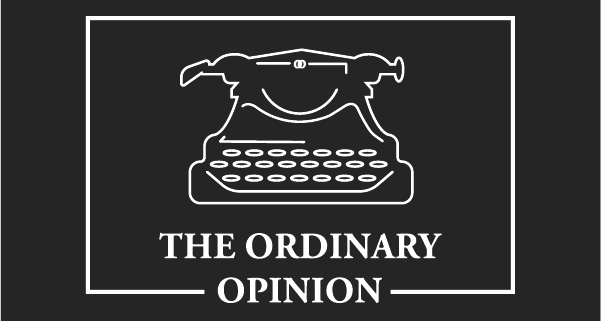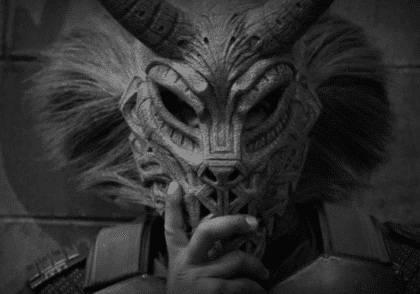In case you were wondering, you should go see Black Panther.
By now, you’ve heard that from everyone you know, several times a day. And you should listen to them. If you don’t, I get it – some people just don’t like hype. Like the people who don’t watch Game of Thrones, or who avoid new iPhones.
Don’t be like those people. If you like movies or nice things at all, you need to see The Black Panther. Twice. I loved it, and enjoyed every part of it
I enjoyed the music, the colors, the pacing of the film.
I enjoyed the depth of the characters and the quality of the acting. I wasn’t as taken by Shuri as everyone else, but I still wish she and I were related. I thought T’Challa and Okoye were phenomenal, Okoye particularly. Killmonger was a bit too woke for me, but at least when he sang his “we were all kings and queens in Egypt” song, it’s because he was actual royalty, with rights to feel and do everything he felt and did.
I enjoyed how far this movie felt from the rest of the Marvel universe. Thor didn’t make an appearance. Iron Man didn’t develop T’Challa’s suits. It was just a black dude and his black family doing black things to a black villain. No SHIELD force fields in Wakanda; it was blue cloaks and rhinos, far more advanced than the former. When the movie did take us West, it wasn’t to New York or Tony’s lab. It was to Oakland.
The movie danced in its brand of African-ness, and owned its references in ways only confidence makes possible: The leading actors had natural hair (and mocked the idea of wigs worn to fit in). One member of the king’s council had a disk in his lip, imagery many would fear “backward”. A large black man was worshiped as the “great gorilla king,” a few months after H&M was leveled for putting a small black boy in a “coolest monkey” hoodie. Shuri called Ross “colonizer” in the most non-malicious way possible. All of it was excellent.
Then there was the juxtaposition of ancient and modern. We see it in Shuri’s unreal lab being several stories over a shrine where priests culture a sacred plant by hand. Then there are a few scenes where T’Challa’s ship flies over goat herders on their way to Wakanda’s magnificent capital, providing views that many big city Africans would find vaguely familiar. Even the street markets of the Golden City in a way that felt correct.
A Washington Post article referred to Wakanda as a “peerless African nation.” I re-read that sentence a few times, letting my mind enjoy it, since I don’t think I’ve ever seen those three words in that sequence before, in ANY context. Then my joy faded, realizing we were, after all, talking about a make-believe country.
And “make-believe” is where I’m feeling a bit of frustration in all this.
The Black Panther is a party, and everyone’s invited. But by far the most excited attendees are members of the black community in the United States. There is no mistaking the why: this film represents a celebration of black excellence, real and imagined. Real because the actors and the makers of this movie are black and real; because Ryan Coogler is genius and is real; because Xhosa and the Mino are and were real; because banishing the question of whether black movies hold mass appeal is real.
Imagined because a lot of what the audience is celebrating is the view of a black ideal so separate from, independent of, and better than the world centuries of oppression have limited black people to. It’s a world that captures what thinkers and leaders on three continents have described and debated and…imagined. The Africa that could have been. In our minds.
And all of it – real and imagined – is fun. When last was a movie an event that you planned for weeks in advance? February 2018 has been a phenomenal experience made meaningful because it was created by people who look like me. But I’m hearing less and less about the all-black cast and this being the best marvel movie ever, and more and more of a “we told you so” rediscovery of heritage that seems like a stretch.
Not because I’m not having fun, but because it feels weird to even loosely tie the renewal of my black identity to a studio production based on characters drawn up by Stan Lee. It feels like there’s this huge outpouring of support for a make-believe African story in a way I haven’t seen for REAL African stories. People are crying real tears of validation, and I’m wondering…”how did this Disney movie validate you?”
I’ve been told I’m thinking too hard, and to “just let us be great.” Maybe…but then what to make of all the “deep” “thinking” going on right now? About how this is more than just a movie, and will shape the black experience for generations to come? About how this changes everything for how black people see themselves?
What about the hidden lessons I’m supposed to have learned, and the pitfalls I’m supposed to avoid? People are writing “woke” pieces about not letting our children be deceived by Agent Ross’ help, because the CIA in real life tried to destroy the Black Panther party…for a Marvel movie.
There was an article that talked about The Black Panther being as important as Obama being elected President, which I just thought was the biggest, most exaggerated statement in the history of the world.
Obama as president shattered a racist country’s collective perception of what black man are and what a black man can be. He surpassed every expectation and disappointed every trope. But most importantly, Barack Obama is a real person who we saw on TV every day for eight years. He wasn’t a moment…he was a reality our nation had to confront. His is a journey you can raise your daughter or son to take. His place in history, the consequences of his simply being, are really really hard to contain in words or comparison.
The Black Panther is not the first black movie. It’s not the first black superhero movie. It’s not the first movie with African-based themes, and is not the first show to be unapologetically black. It is the first blockbuster, though, and there’s something about that being true that makes crowning this a moment of identity renaissance hard to buy.
The black community needed a W, and in many important ways this is one. But I feel there is danger in rushing to make it more than that, especially if doing so increasingly blurs the lines between real and imagined.
So when people go to the movies dressed in all black, tribute to the Black Panther party, it just strikes me as confused.
And so when people wear dashiki to the cinema saying, with tears in their eyes, “I’m so grateful to finally get the opportunity to be my authentic black African self,” there’s a cynical part of me that feels hurt that it took a fantasy movie about a scripted hero king in a make-believe country crafted by-and-for the commercial decisions of The Walt Disney Company to make you proud of African things and realities that have existed for centuries.
And when audiences slow-clap Kilmonger’s accusation that the fake country of Wakanda stands by and does nothing while 2 billion black lives all over the world are beaten and broken, I wonder if anyone is considering the irony of their applause. Because a near-opposite truth exists in the world today: there are 1.2 billion black lives on a real continent right now who could use some real help (or just support) from the black lives living in the diaspora, many of who are far more fortunate. But all I’ve got is Oprah’s school for girls.
I’m sorry, but I disagree with The Black Panther as a rallying cry for African heritage or for redefining the grounds of self-esteem for African-Americans as people of African descent. Because amazing as it and its achievements are, it’s still just a movie about a comic not particularly written to help us find our roots.
I think what I’m saying is that I’m a bit torn by the very real feelings and excitement people have for their heritage and place in this world as supported by comics, vs. the absence of that same level of excitement and ownership for a very real continent of Africa that you can reach out and touch and that makes movies none of us go to see, and sure as hell don’t dress up for.
Is it easier to be proud of African heritage when it’s beautifully done up in special effects and pure fantasy?
And as an African, I wonder, will you still be as proud tomorrow, when this whole thing dies down?
—
I will be forever grateful for the Black Panther. It throws African language and dress and ideals on the world’s biggest stage, helmed by the finest young black artists on earth, for ALL to enjoy. It disregards predictions of failure as out-of-touch and paints a picture of the Africa we could’ve had – after all, Wakanda is what it is because of mineral wealth, a reality for most African nations today. The movie itself is near-perfect.
But as a driving occasion for black people to reconsider their black selves and to be proud of their Africanness, it falls a bit short for me. One because the occasion feels manufactured; two because it’s pride from a distance, embracing the beauty of Africa as captured on a marvel studios green screen after long ignoring the beauty of a real Africa there for all to see. Xhosa and dashiki weren’t invented this year.
Wakanda forever.



